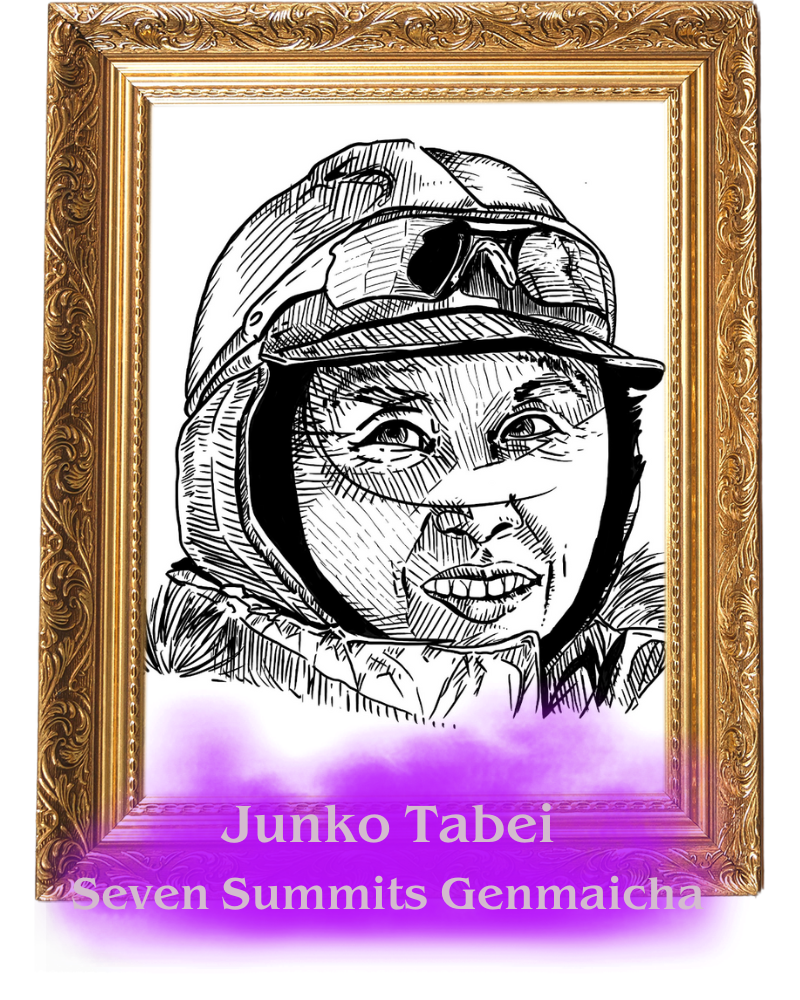There’s a story in Japan that has haunted the nation for decades—a story so chilling it’s hard to believe it actually happened. The name Junko Furuta may not ring a bell to everyone, but this case remains one of the darkest stains in Japanese history. Her story isn’t just about tragedy; it’s about understanding how far humanity can fall when empathy is lost. Let’s dive into the chilling details, but be warned—it’s not for the faint-hearted.
When you hear the word "darkness," what comes to mind? For many, it’s just a metaphor, but in the world of true crime, some stories make you question humanity itself. Junko Furuta’s case is one of those moments where reality feels like a nightmare. It’s a story that still sends shivers down the spines of people who hear it for the first time.
This article is not just about recounting a story—it’s about learning from the past, ensuring we don’t let history repeat itself. The tragedy of Junko Furuta serves as a reminder of the importance of justice, accountability, and the need for societal change. So, buckle up because this ride’s gonna be heavy.
Read also:Bollyflixvip The Ultimate Destination For Bollywood Enthusiasts
Biography of Junko Furuta
Who Was Junko Furuta?
Junko Furuta was a 17-year-old high school student from Saitama, Japan, whose life took a tragic turn in December 1988. Her world was shattered when four classmates abducted her, taking her to a private home where they held her captive for over three weeks. This wasn’t just any kidnapping—it was a nightmare that unfolded in unimaginable ways.
Let’s take a closer look at who Junko was before her world turned upside down. Below is a table summarizing key details about her life:
| Full Name | Junko Furuta |
|---|---|
| Date of Birth | March 24, 1971 |
| Age at the Time of Incident | 17 years old |
| Place of Incident | Saitama Prefecture, Japan |
| Occupation | High School Student |
The Incident That Shocked Japan
How It All Began
On December 1, 1988, Junko Furuta’s life changed forever. After a volleyball match, she was approached by four classmates who lured her into their trap. Initially, it seemed like a harmless invitation to join them for dinner, but it quickly turned into a nightmare. Instead of a meal, she was taken to a private residence where her ordeal began.
For 44 days, Junko was held captive, subjected to unspeakable horrors. The four perpetrators, all high school students themselves, took turns torturing her, both physically and mentally. The level of cruelty was so extreme that it shocked even the most hardened investigators.
The Role of Society and Schools
Why Did No One Intervene?
One of the most haunting questions surrounding Junko’s case is why no one stepped in. Neighbors reported hearing screams from the house where she was held, yet no action was taken. This raises serious questions about societal responsibility and the role of schools in protecting their students.
- Did neighbors fear retaliation?
- Were they indifferent to the cries for help?
- How could a community fail so miserably?
These questions still linger, and they highlight the need for better communication and vigilance within communities.
Read also:Kannada Movie Rulze A Mustwatch For Every Film Buff
The Legal Aftermath
Justice Served?
When the perpetrators were finally caught, the legal proceedings were as complex as the case itself. Three of the four boys were sentenced to life in prison, while the fourth, due to his young age, was given a lighter sentence. However, many felt that justice wasn’t truly served. The leniency shown to one of the perpetrators, who was only 14 at the time, sparked outrage and debate about Japan’s juvenile justice system.
The case also led to significant changes in Japanese law, particularly regarding the treatment of juvenile offenders. It highlighted the need for stricter penalties and more transparency in the justice system.
Psychological Impact on Society
How Did Junko’s Case Affect Japan?
The impact of Junko Furuta’s case on Japanese society cannot be overstated. It forced the nation to confront uncomfortable truths about its education system, community values, and the treatment of juveniles in the justice system. The case became a catalyst for change, prompting discussions that continue to this day.
Many psychologists and sociologists have studied the case, trying to understand the mindset of the perpetrators and the societal factors that contributed to such a heinous act. Some argue that the lack of emotional education in schools played a significant role, while others point to broader societal issues like peer pressure and the influence of media violence.
Lessons Learned from Junko’s Tragedy
What Can We Do to Prevent Such Cases?
Preventing future tragedies like Junko’s requires a multi-faceted approach. Here are some key takeaways:
- Strengthening community vigilance and reporting mechanisms.
- Improving education systems to include emotional intelligence and empathy training.
- Reforming juvenile justice systems to ensure accountability while allowing for rehabilitation.
These lessons are crucial not just for Japan but for societies worldwide. Understanding the root causes of such crimes can help prevent them in the future.
Remembering Junko Furuta
Her Legacy Lives On
Though her life was tragically cut short, Junko Furuta’s legacy lives on through the changes her case inspired. Her story serves as a stark reminder of the importance of empathy, justice, and societal responsibility. It’s a tale that continues to resonate with people around the world, urging us to reflect on our own actions and the impact they have on others.
Every year, on the anniversary of her death, people in Japan and beyond remember Junko. Her case is a testament to the power of memory and the enduring quest for justice.
The Global Impact of Junko’s Story
Why Does It Still Matter Today?
Junko Furuta’s case may have happened decades ago, but its relevance remains as strong as ever. In an era where true crime stories dominate media platforms, her story stands out as a cautionary tale. It’s a reminder that no matter how far we’ve come, there’s always more work to be done in creating a safer, more empathetic world.
Internationally, her case has sparked discussions about the treatment of juveniles in the justice system, the role of communities in preventing crime, and the importance of emotional education. These are conversations that need to continue if we hope to make a difference.
Looking Forward: What’s Next?
Continuing the Conversation
As we look to the future, it’s important to remember that the fight against injustice doesn’t end with one case. The legacy of Junko Furuta should inspire us to keep pushing for change, whether that’s through advocacy, education, or simply being more aware of the world around us.
Here’s what you can do:
- Support organizations working to prevent violence and protect vulnerable individuals.
- Engage in conversations about justice and accountability within your community.
- Stay informed about current events and how they relate to broader societal issues.
Conclusion
Junko Furuta’s story is a dark chapter in history, but it’s also a powerful reminder of the need for change. Her case highlights the importance of empathy, justice, and societal responsibility. While the details of her tragedy may be difficult to stomach, her legacy lives on in the changes her story has inspired.
We invite you to share your thoughts in the comments below. How do you think society can better protect its most vulnerable members? What steps can we take to ensure that tragedies like Junko’s never happen again? Let’s keep the conversation going and work towards a brighter future.
Table of Contents
- Biography of Junko Furuta
- The Incident That Shocked Japan
- The Role of Society and Schools
- The Legal Aftermath
- Psychological Impact on Society
- Lessons Learned from Junko’s Tragedy
- Remembering Junko Furuta
- The Global Impact of Junko’s Story
- Looking Forward: What’s Next?
- Conclusion
Let’s honor Junko by continuing the fight for a safer, more just world. Her story may be over, but her legacy lives on in every action we take to make a difference.


